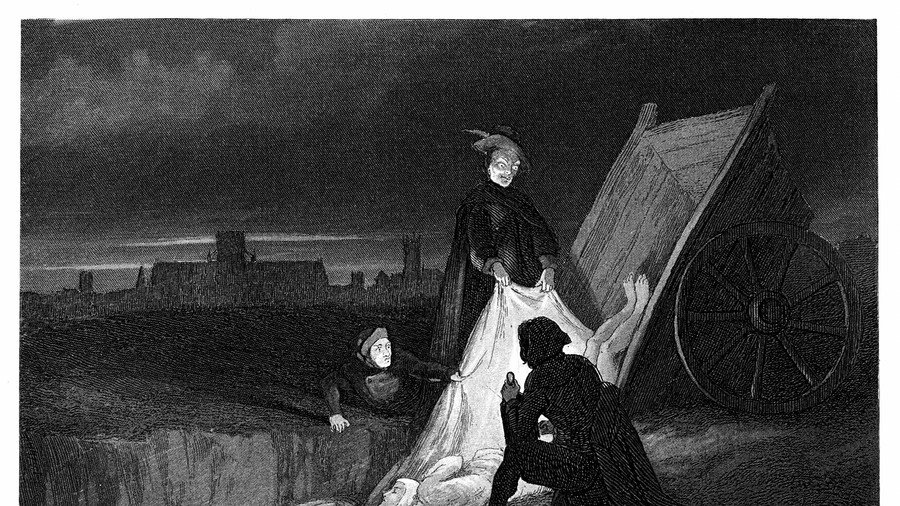Black Death: UKIP general secretary compares party to bubonic plague

UKIP’s disastrous performance in the local elections in England has prompted a senior figure to compare the party to the Black Death, a disease that killed over 50m across Europe in the 14th century.
By 9am on Friday morning the party had lost 92 out of its 183 councilors. The only high point was in Derby where they gained a seat to force Labour to lose control of the council and change its status to No Overall Control (NOC).
The highs of finishing as the third largest party at the 2015 general election, a distant memory...dead in the water, much like many of the victims of the “Black Death” no doubt.
In a BBC Radio 4 interview, Paul Oakley, UKIP’s general secretary told listeners that his party had suffered as a result of financial instability and a long protracted internal battle with ex-leader Henry Bolton over his girlfriend’s racist messages.
More was to come from Oakley, in what many will feel is a comical claim, Oakley went on to compare his party's current standing to the bubonic plague as he explained, “Think of the Black Death in the Middle Ages.” He continued, “It comes along and it causes disruption, and then it goes dormant. And that’s exactly what we’re going to do. Our time isn’t finished, because Brexit is being betrayed.”
Was it a faux pas or did Oakley really intend to use a simile which links a fatal human disease that gave millions gangrene and blackened boils before dying to Nigel Farage enjoying a pint and a euro-skeptic party that to some, were integral to Britain voting to leave the EU?
The UKIP general secretary seemed to be taken aback at the interviewer doubting his meaning and who could blame him. He fired back: “What’s wrong with that?”, adding that the plague had “led to economic growth and the Renaissance”.
Some historians may suggest that Oakley is a little off the mark on his proclamation that the Black Death had its benefits. There are those that say it caused a huge shortage of workers, and when Parliament enacted laws to stop the rise of wages, the poor became very discontented, so much so, that some historians say contributed to the Peasants' Revolt of 1381.
Oakley’s left-field comparison has led to bemusement and ridicule on social media with some suggesting that there are indeed similarities to be made between UKIP and the bubonic plague, but not for any positive reasons. Others put forward some more accurate comparisons in their eyes.
Two minutes into the interview, chat with Ukip chap is going well. 'Just give us one aspect of the black death you'd like to emulate'
— Ian Dunt (@IanDunt) May 4, 2018
The Ukip chap who compared his party to the Black Death may have had a point. Who can read the words "The classic sign of bubonic plague was the appearance of buboes in the groin, the neck, and armpits, which oozed pus and bled" without thinking of Neil Hamilton?
— James O'Brien (@mrjamesob) May 4, 2018
UKIP is less like the Black Death, more like a catastrophic anal injury. Those suffering from UKIP have lost the ability to take a seat
— Omid Djalili (@omid9) May 4, 2018
Suzanne Evans, UKIP’s former deputy chair, admitted the party could be finished. “If UKIP does crumble, I think you could still arguably make the case that it’s been one of the most successful political parties in history,” reports The Guardian.
These nightmare council election results could be the beginning of the end for UKIP as a major player in British politics, with Brexit day (which was proposed to be a national holiday by Nigel Farage and Nigel Evans, the Euroskeptic Tory MP) drawing ever closer for the UK. Some might suspect that only the unlikely event of Brexit being thwarted could save the party seemingly so interconnected with the Black Death.
Omar Baggili, RT Journalist
Like this story? Share it with a friend!















